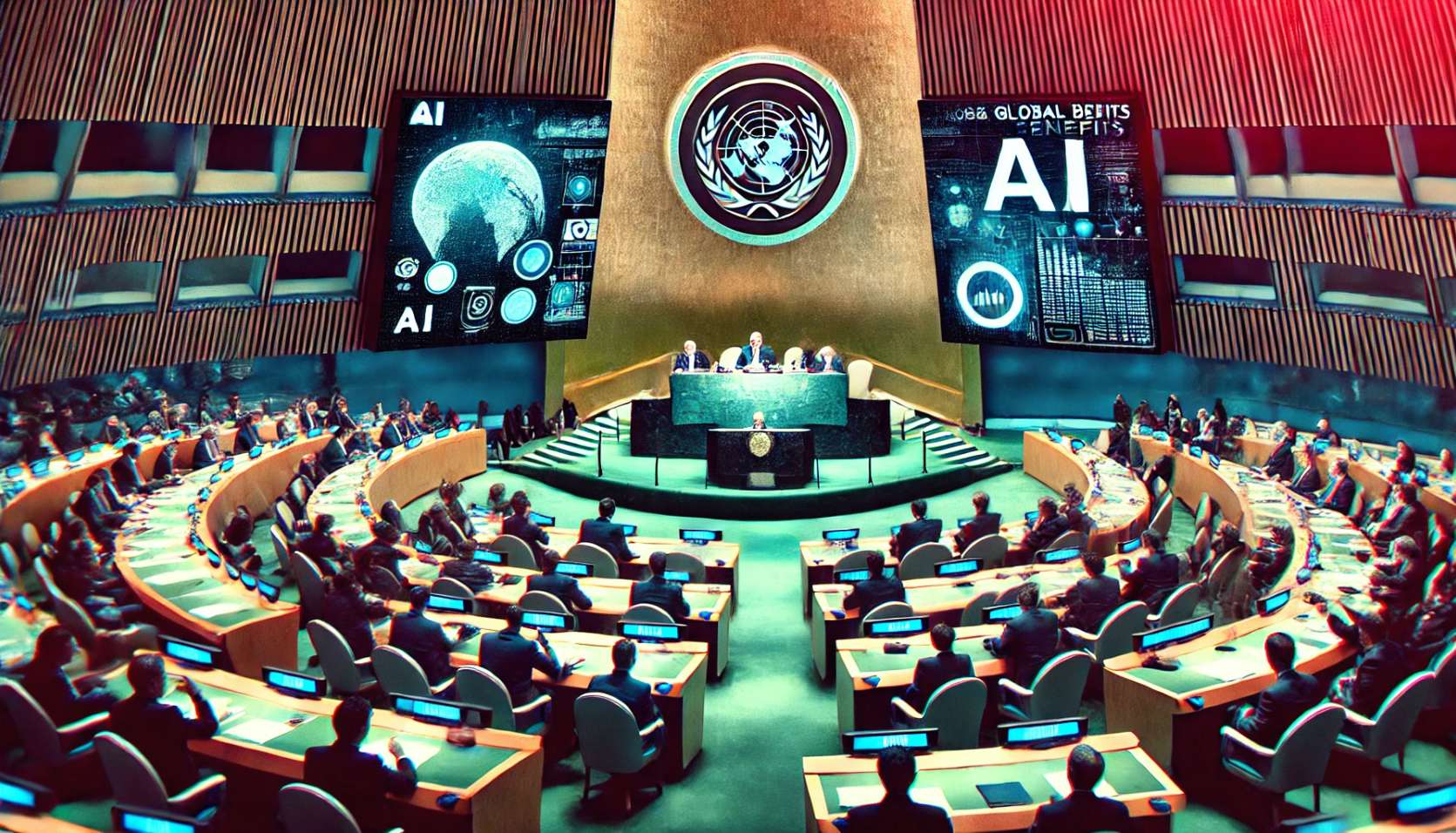Imagine sending your résumé to apply for a job at an e-commerce company. Two days later, an automatic reply arrives: “Thank you for applying. Your profile was not selected.” No explanation, no human contact — just an email. Behind it, an artificial intelligence system has evaluated your education, social networks, and employability pattern, yet rejects your application without you ever knowing why.
Now picture a busy avenue where facial recognition cameras scan thousands of people a day. A woman walks down that street, and her image is compared to databases designed on another continent. The regulation governing that verification was not debated in a local parliament but follows international technical standards — codes drafted by global committees.

That is the hidden face of AI: systems that make crucial decisions about our lives based on rules we neither choose nor understand.
Who writes the rules of AI?
Beyond well-known legislative proposals such as the European AI Act, the rules — both technical and ethical — for AI systems are being shaped in institutions like the International Organization for Standardization (ISO) and the International Electrotechnical Commission (IEC) through their joint committee ISO/IEC JTC 1/SC 42 (“Artificial Intelligence”). These forums produce technical standards on AI governance, risk, auditing, and system verification. For example, the standard ISO/IEC 42001:2023 has just been adopted in Colombia, making it the first Latin American country to enable certification for AI management systems.
In parallel, large technology platforms and industrial consortia like the Institute of Electrical and Electronics Engineers (IEEE) define technical specifications that, while not legally binding, effectively become global operational norms. Many of these apparently technical standards end up determining not only the functional requirements of AI systems but also their ethical frameworks.
Latin America’s invisibility at the table where rules are written
Unlike Europe, which coordinates technical governance through regional bodies such as CEN and CENELEC (for example, via the joint committee JTC 21 working on standards for the AI Act’s implementation), or Asia, where ASEAN and APEC have created regional forums to harmonize AI approaches, Latin America still lacks a stable regional space for debating and proposing common technical norms.
Countries are advancing in a fragmented manner, with national initiatives that reproduce external frameworks without a regional coordination structure. A study of four Latin American countries (Brazil, Colombia, Chile, and Uruguay) found that citizen participation in designing these strategies reached only the level of “consultation,” with no shared decision-making. Meanwhile, although countries like Brazil participate in technical committees, Latin America’s effective influence and contextual voice remain weak.
This gap is not merely symbolic. It means that Latin America imports rules, procedures, and evaluation frameworks designed for very different realities. When applied in the region, these standards can have harmful consequences — bias, exclusion, and decisions that fail to reflect Latin America’s social, linguistic, and cultural diversity.
A recent analysis concluded that regional cooperation is “crucial” for AI security and governance, precisely because there is still no collective voice capable of influencing the global forums where the digital future is being written. This institutional absence explains why the region relies on foreign standards — mainly European, U.S., or Chinese — to define what counts as “safe” or “responsible” AI.
For instance, an analysis of 38 public facial recognition implementations in nine Latin American countries showed that, in most cases, there was no human rights impact assessment or public consultation. In Buenos Aires and São Paulo, biometric surveillance systems were deployed without adequate legal frameworks; in Argentina’s capital, millions of face matches were recorded between 2019 and 2022 without substantive citizen participation.
More than technological dependency
This leads to a form of regulatory dependency. In purchasing technology, countries also accept the regulatory frameworks that come with it — frameworks that often reflect values, priorities, or risks foreign to Latin America. This lack of agency affects not only rights but also the economy. A Latin American AI company must conform to externally designed standards to access global markets, raising entry barriers for local innovation and reinforcing the region’s position as a technology consumer rather than a co-producer.
The problem therefore compounds itself. Imported regulatory frameworks often overlook informal labor, the presence of Indigenous and Afro-descendant communities, infrastructural disparities, and the rural-urban digital divide — producing new layers of technological and data inequality.
The data confirms this gap. According to Access Now’s regulatory mapping, most Latin American AI frameworks replicate external models without adapting technical criteria or safeguards to local contexts. Even the most advanced initiatives, such as Brazil’s or Chile’s national AI strategies, are based on OECD or European Union guidelines. Meanwhile, projects like the Latin American Artificial Intelligence Index (ILIA) focus more on measuring adoption than on building regional standards.
Toward a Latin American voice in AI governance
Latin America’s political, economic, and cultural diversity makes it harder to develop a unified standard, which has likely discouraged efforts to establish a regional technical body. Yet the region has an opportunity. Thanks to its biodiversity, cultural wealth, renewable energy potential, and demographic diversity, Latin America could craft its own model for AI — one not limited to adoption but focused on creation.
To achieve this, progress is needed on three fronts: first, greater participation in international standardization committees to ensure Latin American contexts and values are represented; second, promotion of regional standards or adaptations of global ones — why not a Latin American “trustworthy AI” label reflecting regional realities?; and third, public education and mobilization. When AI affects people’s lives so profoundly, society must have the right to question, participate, design, and oversee.
In this sense, Latin America could also offer something missing from the global debate: an ethical vision rooted in inclusion, social justice, and sustainability. Its long tradition of critical thought and community activism could inspire a more human, less extractive, and more solidaristic artificial intelligence.
Ultimately, democracy in the digital era is not limited to voting every four years. It also means asking: who programs, who validates, and who is excluded?
*This article is part of the collaboration between the Organization of Ibero-American States (OEI) and Latinoamérica21 for the dissemination of the platform “Voices of Ibero-American Women.” Learn and join HERE.
**Machine translation, proofread by Ricardo Aceves.












